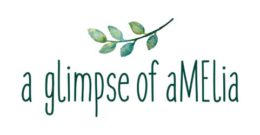Bacon
REVIEW ON BACON-
Bacon comes from a pig’s belly, back or side or anywhere that is high in fat.
Nitrates are additives responsible for giving bacon its pink colour and preserving the meat from harmful bacteria especially Clostridium botulinum.
Once the meat is cut, bacon typically goes through a curing process, during which the meat is soaked in a solution of salt, nitrates and sometimes sugar to cure.
Nitrate is permitted to be added to slow dried cured meats up to 125mg/kg and fermented uncooked processed meat products to a maximum level of 500mg/kg in Australia.
Nitrates and nitrites, such as potassium nitrate and sodium nitrite, are naturally occurring chemical compounds that contain nitrogen and oxygen. In nitrates the nitrogen is bonded with three oxygen atoms, while in nitrites the nitrogen is bonded with two oxygen atoms.
Vegetables acquire nitrates and nitrites from the soil they grow in. Nitrates are part of natural mineral deposits, while nitrites are formed by soil microorganisms that break down animal matter.
Organically grown vegetables may have lower levels than non-organic vegetables as synthetic nitrate fertilisers aren’t used.
So there’s an important difference between the way nitrates and nitrites are packaged in meat versus in vegetables and that affects whether they’re carcinogenic, too.
The World Health Organization has classified processed meats including ham, bacon, salami and frankfurts as a Group 1 carcinogen (known to cause cancer) which means that there’s strong evidence that processed meats cause cancer. Eating processed meat increases your risk of bowel and stomach cancer.
Unlike in vegetables, the nitrites in processed meats are in close proximity to proteins.
Most of the nitrites we encounter aren’t consumed directly, but are converted from nitrates by the action of bacteria found in our mouths when chewing. Salivary Nitrites.
Approximately 5% of ingested nitrate is converted into nitrites in saliva. When the nitrites manufactured in our mouth are swallowed, one of the things that can happen is that they react in the strongly acidic environment of the stomach to form nitrosamines, some of which are carcinogenic and have been linked with bowel cancer. But for this to happen, a source of amines, chemicals related to ammonia that are found abundantly in protein foods, is required. (Not vegetables) Nitrosamines can also be created directly in foods through high-heat cooking, as with fried bacon. For example, nitrites in processed meats are in close proximity to proteins (specifically amino acids). When cooked at high temperatures this allows them to more easily form nitrosamines, the cancer-causing compound.
You can also enjoy slow-cured, nitrate-free bacon if you can find it. It may cost more than regular bacon, but it is typically made with less of the carcinogenic compounds. Look for bacon that is organic or from pastured raised pigs, fed healthy food and pigs that have access to the outside and sunlight. Look to see if they have an all natural vegetarian diet, instead of cheap corn and soy based diets. “You are what you eat, and pigs are what they eat as well.”
It’s not so much nitrates/nitrites that are carcinogenic, but the way they are cooked and their local environment they go into.
Organic bacon is free of antibiotics and preservatives and organic pigs should be fed organic feed.
Bacon CAN be free of artificial nitrates, which is something to consider. Whether the nitrates are artificial or natural, however, they become carcinogenic when charred or burned.
The best bacon choice is uncured, reduced sodium center cut bacon. Bacon is a high sodium food and is a risk factor for high blood pressure so should only be consumed in moderation.
My top tips for eating bacon:
* Buy organic, pastured raised, nitrate free bacon
* When cooking don’t burn or char it
* Eat in moderation like all foods. Not every day
* Know where your bacon comes from
Some brands to consider:
Hagens Organics dry cured bacon
Voodoo Nitrate free streaky bacon.
Australian free range pork belly from Queensland.
Australian organic means co-Free-Range and Nitrite-Free Bacon Rashers
Redinas butchers Balwyn
Woolworths bacon-D’orsogna 100% Natural Streaky Bacon
Most organic meat stockists will have nitrate free meat some deli’s, but make sure you ask.

